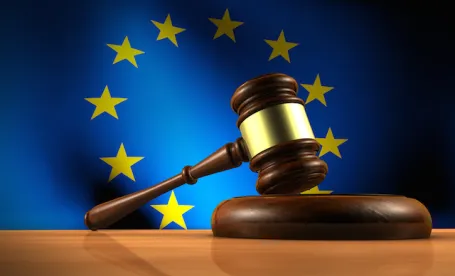“Brexit” and the Start of the Slovak Presidency
In an advisory referendum in the UK on June 23, 51,9 % of voters called for their country to leave the European Union. This historic event will obviously dominate the EU agenda for years to come.
The EU reacted swiftly on the occasion of the June 28 to 29 European Council meeting. The Council:
|
■ |
asked for the UK to notify as soon as possible their intention to withdraw from the Union—and insisted that no negotiation, even informal, will take place before article 50 of the Treaty on European Union is triggered; |
|
■ |
decided that the negotiation will be conducted by the Commission, but set up a task force in the Council to deal with the discussion of the new framework for the UK-EU relationship; |
|
■ |
confirmed clearly that, if the UK wants to continue to be part of the EU internal market, it needs to respect fully the free movement of people; and |
|
■ |
agreed that the other 27 Member States should meet on September 16 in Bratislava to develop a “political reflection to give an impulse to further reforms”. |
The UK Conservative Party has now selected a new leader, Theresa May, who will replace David Cameron as Prime Minister once appointed by Her Majesty the Queen, tomorrow, June 13.
Though almost entirely eclipsed by Brexit, July 1 saw the opening of the Slovak Presidency. After the traditional meeting of the College of Commissioners in the new Presidency’s capital, Bratislava, Commission president Juncker outlined what he considers to be the highlights for the next 6 months:
|
■ |
the continuation of the Investment Plan for Europe; |
|
■ |
the reinforcement of the single market with the “launching in a definite way” of the Energy Union, the Digital Single Market and the Capital Markets Union; |
|
■ |
the completion of the Banking Union, including the European Deposit Insurance Scheme; and |
|
■ |
the implementation of the decision made at the end of June on the new European Border and Coast Guard. |
Slovak Prime Minister Fico made a speech to the European Parliament on July 6. He recalled the four priorities of his presidency: “an economically strong Europe, a modern single market, migration, and a globally committed Europe”. He insisted that the Union “cannot focus on crisis management only” but must offer its citizens a “long-term vision” to regain their confidence and “fight growing populism and nationalism”.
Digital Single Market Policy
At a joint press conference in Brussels on July 12, Commissioner Jourová and the U.S. Secretary of Commerce, Penny Pritzker, presented the new EU-U.S. Privacy Shield—see the adequacy decision text here, the Commission’s press release here, and a Q&A factsheet here. The College of Commissioners has approved the adequacy decision, and last night, July 11, Commissioner Jourová discussed the new arrangement with the European Parliament.
This announcement is the culmination of a two and a half year-long negotiation between the EU and the U.S. on the revision of the previous EU-U.S. Safe Harbor framework (invalidated by the Court of Justice of the EU in October 2015). Once translated and published in the Official Journal of the EU, the adequacy decision will enter into force. The U.S. Department of Commerce is now working on the implementation of the arrangement, and will accept self-certifications from U.S.-based companies from August 1, 2016. Doing so provides a legal basis which entities in the European Economic Area can rely on to transfer personal data to those Privacy Shield-certified companies in the US. The Commission will produce a citizens’ guide to explain the means of redress available to EU citizens. The Privacy Shield contains a much more robust set of commitments than those underpinning the Safe Harbor and will provide stronger protections to data subjects in the EU than its predecessor.
On June 2, BEREC, the body comprising the EU’s 28 telecoms regulators, issued a set of draft guidelines on implementing the EU’s new net neutrality rules. According to the EU’s net neutrality rules, telecoms operators are obliged to treat all internet traffic equally. BEREC’s draft guidelines on their implementation will require telecoms operators to justify giving priority to certain services on their network, on the grounds that such discrimination is “objectively required”; and that this discrimination does not negatively affect the internet. National regulatory authorities will be charged with determining on a case-by-case basis if these checks have been met, meaning each new application will have to be assessed individually. The draft guidelines note that services such as high-quality voice calling or remote surgery will likely be allowed as specialised services. Zero-rating, whereby an operator does not count the use of one specific application against a user’s data allowance, will be allowed, but only until the user hits their total contracted data cap. The draft guidelines are now open to public consultation.
On July 1, the Commission adopted a package of measures to modernise the EU’s standardization policy. A decision providing the framework for a Joint Initiative on Standardisation (JIS) was issued on June 13, with the goal of modernising, prioritising and speeding up the delivery of standards by the end of 2019. The JIS will prioritise standard setting with support from Horizon 2020; and promote the use of European standards at the international level. The Commission’s Communication on the annual work programme on European standardisation for 2017 sets the ICT and services sectors as priority areas for standard-setting—see the Communication here.
On July 5, the European Commission signed an agreement with industry on cyber security, encouraging member states to work with private groups and setting up a pot of funding for research. The deal involves €450 million in funding from the Commission through the framework of Horizon 2020, which is estimated to trigger €1.8 billion total investment into European cyber security by 2020. Funding will be distributed in cooperation with the European Cyber Security Organisation (ESCO) to businesses, universities and other researchers investigating cyber security problems. The partnership is expected to put out its first call for proposals in early 2017. The Commission also published a Communication on the cybersecurity industry, furthering the development of an EU market for cybersecurity. In particular, the Commission pledges to develop a roadmap for a possible proposal for an ICT security certification framework, to be presented by the end of 2017, and to explore options for a cybersecurity labelling framework. In 2017, the Commission will also present a blueprint for handling large-scale cyber incidents. These developments reflect the Commission’s renewed emphasis on cybersecurity, as part of its work on the Digital Single Market.
On July 6, the European Parliament approved the Directive on Security Network and Information Systems (the “NIS Directive”)—see the Commission’s press release here, Q&A factsheet here, and the Council’s common position here. The Directive sets out requirements for companies in critical sectors including energy, transport, banking and health to adopt risk management practices and report major incidents. The Directive creates a network of Computer Security Incident Response Teams across the EU to rapidly react to cyber threats and incidents and establishes a “Cooperation Group” between Member States to facilitate the exchange of information. The Directive is now expected to enter into force in August 2016; Member States will have 21 months to transpose it into national law, and a further six months to identify operators of essential services.
Energy and Climate Change Policy
Following the UK’s June 23 vote to leave the EU in an advisory referendum (as to which, see Section 2, above), a “Brexit” may significantly affect the energy and environmental policies of the United Kingdom as well as the regulatory status of companies in the UK doing business in the EU. In the short term, until Brexit materializes, the UK will remain a full member of the EU, and the regulatory environment will not change. After the UK leaves the EU, however, we are likely to see regulatory divergence, depending on the Brexit model that the UK manages to agree with the remaining EU Member States.
The REACH Regulation on Chemicals is a good example of the regulatory challenges and opportunities a Brexit could present. REACH will continue to apply as normal until the UK leaves the EU—by the end of 2018 at the earliest. Existing deadlines for REACH registration and authorization will therefore still apply to UK companies, including the May 2018 REACH registration deadline for low-volume chemicals if they take place before the UK leaves.
If the UK joins the European Economic Area or agrees to have a similar relationship with the EU, REACH will continue to apply in full in the United Kingdom and the status of companies will not change. However, if this is not the case, REACH will automatically cease to apply in the UK, and even if the UK adopts similar or identical legislation, this will have a significant impact on UK companies. For example, unless agreed otherwise, UK companies will be at risk of losing the REACH registration of substances that they have already submitted. Similarly, many of the Only Representatives (“ORs”) established in the UK who hold REACH registrations on behalf of foreign manufacturers will lose these registrations, unless agreed otherwise. Such manufacturers will have to appoint new ORs in one of the remaining EU Member States.
However, the disapplication of REACH in the UK could give UK-based businesses a competitive advantage, were the UK to adopt a lighter regulatory approach. For example, the manufacture of articles in the UK and their import into the EU would no longer be subject to REACH authorization.
A Brexit will also affect EU environmental policies. The UK has proven a strong ally to industry in this field, supporting economic impact assessments and limits to the precautionary principle. It promoted general pragmatism in environmental legislation and market based instruments. It also contributed significant technical expertise to EU law making. In some cases, EU environmental legislation is therefore likely to become more stringent.
Internal Market and Financial Services Policies
On June 17, the Council agreed on the Commission’s proposal for a Council Directive laying down rules against tax avoidance practices. The Parliament, under the consultation procedure, had agreed on the proposal beforehand, in a slightly different form to the final text. The new directive is part of the Commission’s Anti-Tax Avoidance Package, announced on January 28, 2016 in the wake of the revelations on tax ruling practices in Luxembourg.
The draft directive covers all taxpayers subject to corporate tax, and lays down anti-tax-avoidance rules in five fields:
|
■ |
limiting the amount of interest that can be deducted in a tax year, to discourage the reduction of tax liabilities in high-tax jurisdictions through debt; |
|
■ |
imposing new exit taxation rules to discourage tax base erosion; |
|
■ |
establishing new controlled foreign company (“CFC”) rules to discourage cross-border reattribution of income; |
|
■ |
creating new rules on hybrid mismatches to prevent the use of measures such as double deductions; and |
|
■ |
introducing a general anti-abuse rule. |
The proposal will now be approved without a vote at an upcoming Council meeting. Member States will have until December 31, 2018, to transpose the directive into national law, except for the exit taxation rules, which must be transposed by December 31, 2019.
On June 22, the Council agreed the Commission’s proposal for a European Border and Coast Guard—see the Commission’s press release here. The European Parliament has since adopted the proposals at first reading, on July 6—see the Regulation as adopted here. The proposal will bring together a European Border and a Coast Guard Agency, built from the existing structures of Frontex, and Member States’ border authorities. New provisions include: a rapid reserve pool of 1,500 border guards; powers to intervene against the will of a specific Member State, subject to a Commission decision, where its border control is found to be failing; better coordination of national border forces; and mandatory entry and exit checks for the Schengen zone. The Regulation must now be formally approved by the Council.
On June 7, the Council of the European Union gave the Commission a mandate to start negotiations on comprehensive EU-level air transport agreements with the Association of Southeast Asian Nations (ASEAN), Qatar, the United Arab Emirates and Turkey. The agreements should enhance market access and guarantee a level playing field in the international aviation sector. The agreements will also establish common rules and standards for safety and security, as well as for social and consumer protection. Once concluded, these agreements will replace the current bilateral aviation agreements between the Member States and these countries.
Life Sciences and Healthcare Policies
On June 17, the health ministers of the European Union asked the European Commission to review the effects of certain intellectual property incentives that aim to facilitate the development of drugs in the EU—see here. The review is motivated by concerns in the Council for the long term financial sustainability of national healthcare systems.
According to the Council, this evidence based analysis should focus in particular on the purpose of supplementary protection certificates, the use of the research exemption to patent infringement, data exclusivity for medicinal products, and market exclusivity for orphan medicinal products. Furthermore, the analysis should address the development of medicinal products and the effects of the pharmaceutical industry’s pricing strategies in relation to these incentives. By the end of 2016, the Commission should now prepare a timetable and methodology for conducting this analysis.
In addition, the Council asked the Commission for a report on recent competition cases in the pharmaceutical sector regarding potential cases of market abuse, excessive pricing, as well as other market restrictions specifically relevant to pharmaceutical companies operating within the EU.
Finally, the Council also called upon Member States to consider voluntary mechanisms of cooperation that they might adopt to assess the future introduction of new medicinal products, promote the proactive exchange of information, develop possible strategies on voluntary joint price negotiations, and strengthen existing cooperation schemes.
Trade Policy and Sanctions
On June 13 and 14, a first round of talks started between the EU and Mexico on new trade negotiations. The aim of the talks is to modernize and broaden the scope of the existing “global agreement” from 1997, in order to mirror other new agreements that the EU and Mexico have since negotiated with other partners. The focus will be on cutting customs tariffs and offering companies new opportunities to provide services, participate in public tenders, or invest. The relationship between trade, sustainable development and human rights will also been addressed. Mexico is one of the ten so-called “strategic partners” of the EU. See a report on the first round of negotiations here.
On June 16, the European Parliament and the Council reached a political agreement on the Commission’s proposal for a due diligence and reporting regime for so-called “conflict minerals” imported into the EU. More than a year ago, the Parliament had agreed a mandatory regime for the whole supply chain, including the downstream users of these minerals, requiring them to report on the sourcing of all tin, tantalum, tungsten and gold included in their products. The European Commission, with the support of the Council of Ministers, had only proposed a voluntary regime for importers (the upstream chain), in order to strike the right balance between being sensitive to the issue, and addressing concerns that the burden on industry, mainly SMEs, would be too heavy. The compromise makes the regime mandatory for importers and smelters. It only proposes voluntary reporting by companies listed in the non-financial reporting Directive—which establishes transparency rules for certain companies employing more than 500 people. The EU regime will be applicable to all conflict zones in the world—unlike the U.S.’s Dodd Frank 1502 obligations, which are limited to minerals originating from the Great Lakes region in Central Africa.
On June 17, without discussion, the Council renewed until June 23, 2017, the restrictive measures on Russia that had been imposed progressively since 2014 in response to its role in the crisis in Ukraine. Pressure had been exerted by certain Member States to suppress some of the sanctions or to open a debate on their renewal. These efforts did not succeed, but the general consensus is that a discussion may be opened at the end of this year, if the implementation of the Minsk agreement makes enough progress to justify at least a partial lifting of these measures.








 />i
/>i
